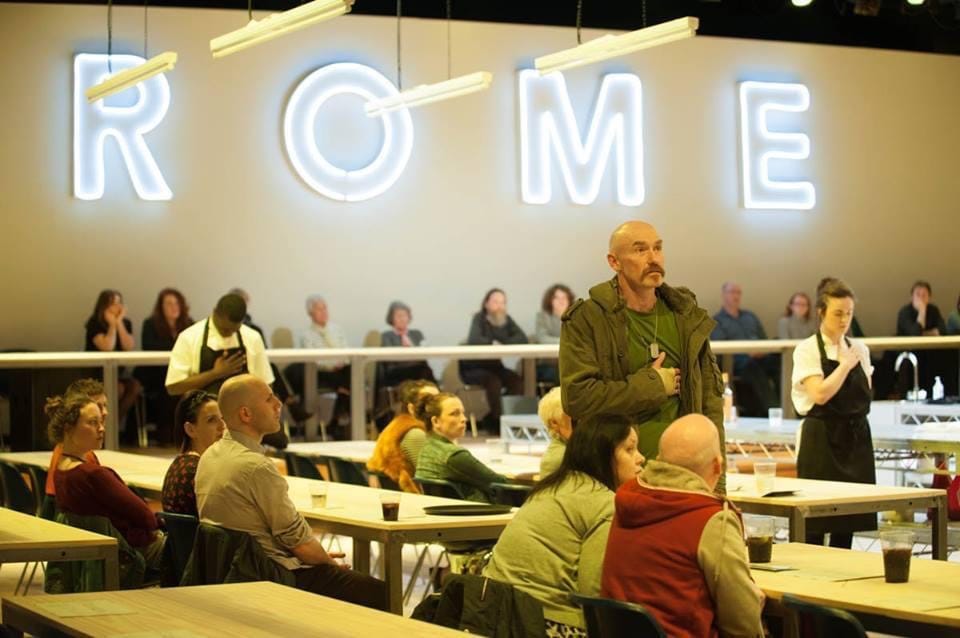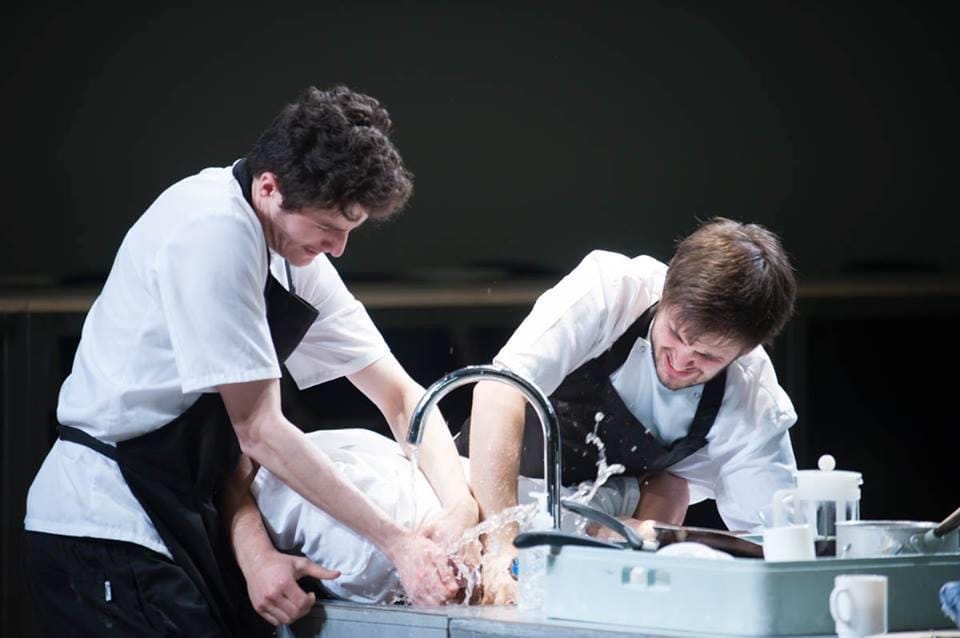Shakespeare’s world of blood and guts
Dodgy Scottish Shakespeare, Titus Andronicus and a site-specific kitchen.
Shakespeare’s worlds intrigue. His works are windows into the past, albeit ones mottled by artistic licence.
Consequently, I am a traditionalist in how I take my Shakespeare, don’t try to be too clever in the staging, too contemporary in your approach, but basically, don’t fuck around with it in the name of art.
Shakespeare wrote for everyone, all classes and creeds, from the groundlings standing by the stage to the merchants on their penny cushions and the ambassadors in their boxes. Even the monarch of the day was a fan, although more likely to command players came to them than to mix with the masses.
Shakespeare wrote comedies, tragedies, love stories and everything in between. Stories, of people and places. Stories with the power to transport their audiences.
Theatre then certainly wasn’t restricted to the refined, middle-class elite of today who have hijacked and frequently overly intellectualised his words while turning the audience experience into that of being a part of an exclusive club.
Thankfully, slowly that is changing, though not fast enough. With tickets prices so obscenely expensive for many shows these day, it’s hardly surprising so many are being priced out of something that really shout be accessible to everyone.
Rediscovering a review I wrote in 2015, inspired these thoughts. It was a critique of a unique site-specific production of Titus Andronicus, by Dundee Rep.
The concept its execution reminded me of what I love most and least about staged Shakespeare, including what was once known as cross-casting though is now probably considered gender blind-casting. At least in this case it was thoughtfully realised.
Reading my words from eight years ago I was surprised at how direct they were. Am I mellowing? If so I’d better set that right immediately.
Anyway, here’s what I wrote on 20 April 2015. If you saw the production, I’d love to hear you memories of it.
‘SCOTTISH theatre doesn't do great Shakespeare. A bit of a sweeping statement perhaps, but one based on my experience of productions of the Bard's work staged here over the years. Which brings me to Titus Andronicus at Dundee Rep.
KAOS Theatre sparked my love of Titus Andronicus, Shakespeare's bloodiest and most gruesome work. That was in 2003, at the old Gateway Theatre, Leith Walk. It was gory. It was raw. And it was visceral. It left a lasting impression.
Titus Andronicus is the story of the eponymous Roman General. Returned from the wars with Tamora, Queen of the Goths, and her three sons as his captives, a double-revenge plot unfolds when, first, he slays her son, Alarbus, and later, she has his daughter Lavinia raped and mutilated by her other sons Chiron and Demetrious.
As the body count rises, hands are chopped off, a tongue is removed, and siblings are cooked in a pie that is then served to, and eaten by their mother. The futility of revenge is stark for all to see.
It is this tale that Dundee Rep bring to life in The Bonnar Hall, which has been transformed into the kitchen of Rome, a restaurant, for the production - the audience are seated at tables.
From the off, as actors mingle, mutter lines and, in one case, cook onions, there is the promise of this being an exciting immersive experience.
While it was good to reacquaint myself with this seldom performed tragedy, and to have the opportunity to clasp the hand of the Great General himself, staring into his despairing eyes as his world crumbled, many of the moments of real drama were muted affairs.
George Anton's Titus, a strangely submissive creation, has perhaps been emasculated by this adaptation, in which Philip Howard has changed the gender of Marcus, his brother. Alison Peebles plays Marcia, his sister instead.
At least, they have an understanding of the lines they speak, which is more than can be said for the rest of the company, with the exception of James Edwyn, a volatile Saturninus, and Emily Winter, the only Dundee Rep Ensemble member in the company.
Winter has an instinctive understanding of the heightened delivery and rhythm of Shakespeare's prose. Relishing the more melodramatic moments with a lascivious abandon.
Elsewhere, there is no rhythm. No living of the text. Accents clash as garbled lines are spat out as though the speaker is in fear of them.
A glance at the programme explains why. Though not immediately apparent from the Dundee Rep website, this is actually a student production, The Royal Conservatoire of Scotland the lead producer.
And therein lies the problem. No less than six of the cast are students, mostly second year. Their inexperience shows. Their concentration on the text robbing it of any emotional truth.
One can not help but wonder why, when there are so many talented actors in Scotland unemployed, this production has been 'passed off' as it has.
Bearing that in mind, it is a chance to experience an unusual staging, not entirely successful (don't get stuck behind the wheelie bin), of a rarely seen play... oh, and the accompanying pie is tasty.’
Too harsh? Oh, I don’t know…








